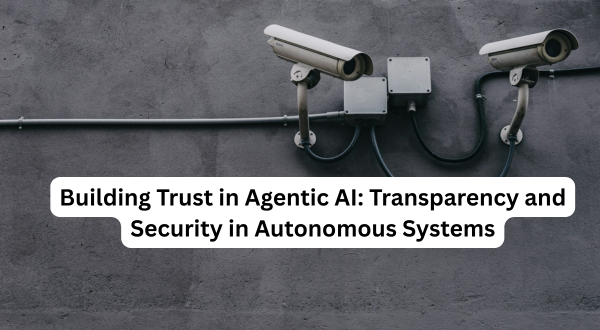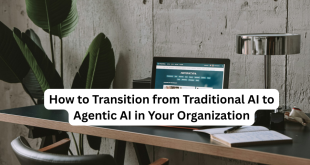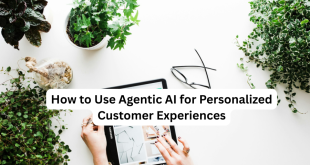As Agentic AI—autonomous systems capable of making decisions and executing tasks with minimal human intervention—reshapes industries, one question looms large: Can we trust these AI agents? From managing supply chains to handling financial transactions, Agentic AI is transforming how businesses operate. But with great power comes great responsibility. Ensuring transparency and security in these systems is critical to building trust among users, organizations, and regulators. In this post, we’ll explore why trust matters, the challenges of autonomous AI, and practical strategies to make Agentic AI transparent, secure, and reliable.
Why Trust in Agentic AI Matters
Agentic AI isn’t just another tool; it’s a decision-maker. Unlike traditional AI, which follows predefined rules or responds to prompts, Agentic AI can assess situations, prioritize tasks, and act independently. For example, in supply chain management, AI agents optimize logistics by rerouting shipments in real-time based on weather or demand shifts. In finance, they execute trades or detect fraud autonomously. Gartner predicts that by 2028, 15% of daily work decisions will be made by such systems, highlighting their growing influence.
But autonomy raises risks. If an AI agent makes a flawed decision—say, misrouting critical medical supplies or approving a fraudulent transaction—who’s accountable? Without transparency, users can’t understand the AI’s reasoning. Without security, malicious actors could exploit vulnerabilities, costing businesses billions. A 2024 report noted that 97% of organizations faced AI-related breaches, underscoring the stakes. Trust hinges on ensuring these systems are both understandable and protected.
The Challenges of Transparency and Security
Building trust in Agentic AI isn’t straightforward. Here are the key hurdles:
- Black-Box Decision-Making
Many AI models, especially deep learning systems, are opaque. Even developers struggle to explain why an AI made a specific choice. For Agentic AI, this “black-box” problem is amplified as agents act on decisions in real-time, often without human oversight. - Dynamic Environments
Agentic AI operates in unpredictable settings, like stock markets or smart cities. Adapting to these environments requires flexibility, but it can lead to inconsistent or unexpected behaviors that erode user confidence. - Security Vulnerabilities
Autonomous systems are prime targets for cyberattacks. Hackers could manipulate inputs (e.g., adversarial attacks) or steal sensitive data, especially in sectors like healthcare or finance where privacy is paramount. - Regulatory Gaps
Regulations lag behind AI advancements. Without clear standards for accountability or transparency, organizations risk deploying systems that don’t meet user or legal expectations.
Strategies for Transparent and Secure Agentic AI
To address these challenges, developers, businesses, and policymakers must prioritize transparency and security. Here are actionable strategies to build trust in Agentic AI:
- Embrace Explainable AI (XAI)
Explainable AI techniques make Agentic AI’s decision-making process understandable to humans. For instance, in finance, an AI agent approving a loan could provide a clear breakdown of factors like credit score, income, and risk assessment. Tools like LIME (Local Interpretable Model-agnostic Explanations) or SHAP (SHapley Additive exPlanations) help demystify complex models. By integrating XAI, businesses can ensure users know why an AI acted, fostering trust.
Case Study: A 2024 deployment of Agentic AI in a European bank used XAI to explain fraud detection decisions, reducing false positives by 20% and increasing customer trust in automated alerts.
- Implement Robust Auditing Mechanisms
Regular audits of AI behavior are essential. These audits should track decisions, flag anomalies, and ensure compliance with ethical standards. For example, in supply chain AI, audits could verify that rerouting decisions align with cost, efficiency, and environmental goals. Blockchain-based logging can create tamper-proof records of AI actions, enhancing accountability.
- Strengthen Cybersecurity Protocols
Security is non-negotiable. Agentic AI systems must incorporate zero-trust architectures, where every action is verified. Encryption, secure APIs, and real-time threat detection can protect against data breaches. Additionally, adversarial training—exposing AI to simulated attacks—can improve resilience. For instance, healthcare AI agents handling patient records use end-to-end encryption to comply with regulations like HIPAA.
- Foster Human-in-the-Loop Oversight
While Agentic AI is autonomous, human oversight remains crucial, especially for high-stakes decisions. Hybrid systems allow humans to intervene when AI confidence is low or outcomes are uncertain. In autonomous vehicles, for example, human drivers can take control in complex scenarios, a model that applies to other domains.
- Align with Emerging Regulations
Regulations like the EU’s AI Act are setting standards for transparency and accountability. Businesses should proactively adopt these frameworks, ensuring Agentic AI systems meet requirements for risk assessment, data governance, and user consent. Compliance not only builds trust but also mitigates legal risks.
Real-World Success: Transparency in Action
Consider the case of a global logistics company that implemented Agentic AI to optimize its supply chain in 2024. The AI autonomously rerouted shipments to avoid delays, but early trials faced skepticism from employees who didn’t understand its decisions. By integrating XAI, the company provided dashboards showing the AI’s reasoning—e.g., prioritizing routes based on fuel costs and delivery deadlines. They also conducted monthly audits and used secure APIs to protect data. The result? A 30% reduction in delivery times and a 25% increase in employee trust, proving that transparency and security drive adoption.
The Path Forward
Building trust in Agentic AI isn’t just a technical challenge—it’s a societal one. As these systems take on more responsibility, users need assurance that they’re reliable, ethical, and secure. By prioritizing explainability, robust security, and regulatory alignment, businesses can unlock the full potential of Agentic AI while minimizing risks. The future of autonomous systems depends on trust, and the time to build it is now.
 UBUCH ubuch | Honest Tech Reviews & Tutorials for Everyone
UBUCH ubuch | Honest Tech Reviews & Tutorials for Everyone




